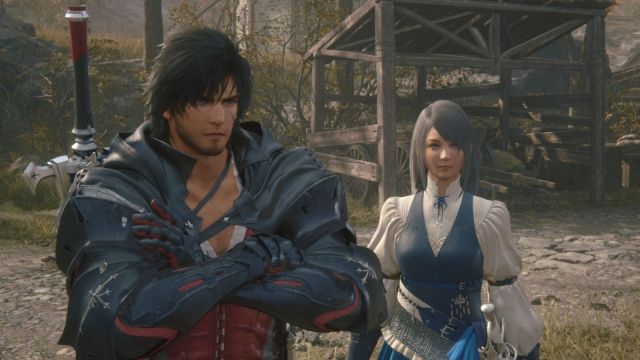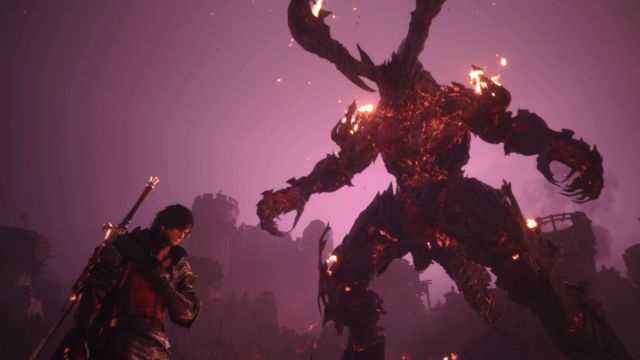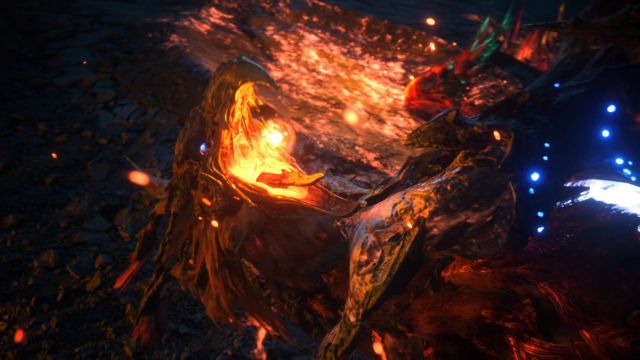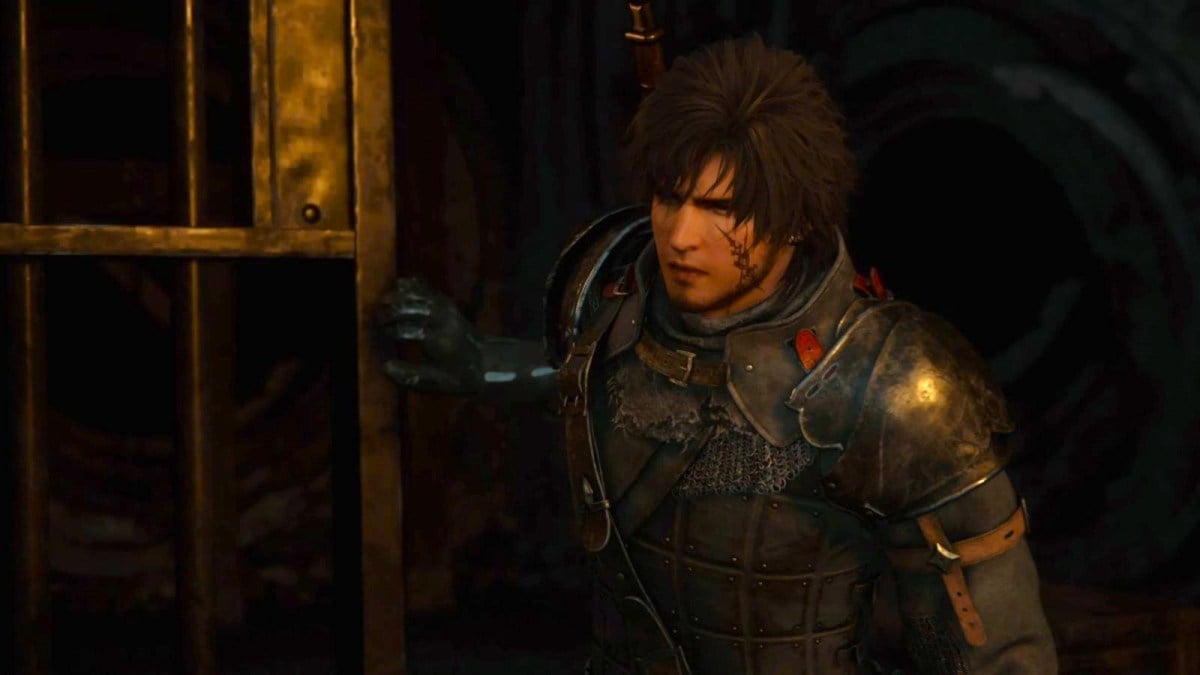My immediate reaction was annoyance. Why was I seeing subtitles when I knew I had turned subtitles off? But it wasn’t a subtitle. Cid was not, in his distinctive northern English rumble, saying, “Your PS5 will enter rest mode in 10 minutes due to power saving settings.” My PS5 was saying it. Because my PS5 thought I’d stopped using it.
This moment says more about my experience with Final Fantasy 16 than any other. I know the PS5’s power saving settings are customizable, but I haven’t touched them since I bought it. And the default setting assumes that if you haven’t used the controller for 10 minutes, you’ve stopped gaming, and it’s time to think about saving some power.
But I wasn’t taking a break. I was “playing” Final Fantasy 16 exactly as intended. In other words, I was sitting there with my arms crossed while the game showed me back-to-back cutscenes without inviting my active participation in any way whatsoever. But was Final Fantasy 16 using the PS5 as Sony intended? That power settings notification would suggest otherwise, and I have to say I’m on Sony’s side here.
I want to play, not watch

Now, call me old-fashioned (because I am, and I’m proud of it), but I enjoy playing games. If I want to watch something, I’ll watch TV, a movie, YouTube, or whatever. And if I fire up a game, it’s because I want to play something. I want to play an active part in what’s happening. I want to make decisions, feel that I have agency, and that I’m being challenged and appropriately rewarded for my actions.
I’ve come to accept cutscenes as a way of driving the narrative and transitioning between gameplay sections, but I much prefer when games are smart enough to tell stories without breaking me out of the action purely with cutscenes. To this day, no one has done it better than Half-Life 2 (see, told you I was old-fashioned). But I’m not totally against cutscenes. I have played games that use a lot of cutscenes, and use them to great effect. Unfortunately, Final Fantasy 16 is not one of those games.
I wasn’t sitting there with a stopwatch the whole time I was playing, but I really don’t think it’s an exaggeration to say that cutscenes make up about 50 percent of the “play” time in Final Fantasy 16. Whatever the exact figure is, it’s way too much. I am of the traditionalist view that games are primarily there to be played, not watched. But I accept that there are also those who view games as hybrid entertainment media, maybe even as art, to be enjoyed both actively and passively.
Even if I force myself to look at Final Fantasy 16 through an entertainment media lens, it still doesn’t hold up that well. If a game is going to lean so very heavily on cutscenes, then they’d better be the best damn cutscenes I’ve ever seen. And I mean all of them. But they’re not. They’re just not.
There’s too much filler, not enough killer

Don’t get me wrong. There are some best-in-class cutscenes in Final Fantasy 16. The epic kaiju-style battles between Eikons (the giant monsters that evolved from the series’ traditional Summons) are seriously awesome. Honestly, these sequences make anything in any God of War game look sluggish, bland, and low-key by comparison.
But these awesome cutscenes only add up to a total of three hours and forty-eight minutes. I know this because someone’s already cut them all together into one video and posted it on YouTube. That video is all of the good bits in Final Fantasy 16 in one place, and you can save yourself $70 and about 40 hours of your life by watching it.
Related: Final Fantasy 16 chapter list: All main story missions and side quests
The bulk of the other cutscenes in Final Fantasy 16 do nothing but drip-feed exposition at a painfully slow pace. Characters just stand there looking blankly at each other while spelling out every beat of the story between long, pregnant pauses. The lip-syncing is really good (in English, at least), but the other animations in these long bouts of conversation padding are stiff, awkward, robotic, and technically dated.
In a world where Naughty Dog has been producing cutscenes by motion-capturing actors interacting with each other in person (actually acting, in other words) for almost two decades, Final Fantasy 16’s rigid dialogue sequences are found severely lacking in emotion or humanity. This makes them feel even longer than they are. And they are long.
I don’t know whether to laugh or cr… cringe

Speaking of emotion, some of Final Fantasy 16’s cutscenes are intended to be moments of drama and real human emotion. But these moments, too, fall way, way short of the best that’s already out there.
Any scene in which someone witnesses the death of a loved one ought to be profoundly powerful, and a few games have proven capable of pulling this off. At the end of Half-Life 2: Episode 2, just before Eli Vance is about to be disemboweled in front of his own daughter, Alyx, his last words are, “Close your eyes, honey. Don’t look.” Soon afterward, holding her father’s lifeless body in her arms, Alyx sobs, “Dad. No… don’t leave me.” And that’s when the credits roll. I’m getting choked up even writing about it.
Similarly, when Joel’s child dies in his arms at the start of The Last of Us, all he can do is repeatedly sob, “Please… please… please don’t do this…” And no, I don’t have something in my eye. This moment is as powerful as it damn well should be.
Then there’s Hellblade: Senua’s Sacrifice, the entirety of which is an immensely well-researched, well-written, well-produced, well-performed depiction of a psychotic episode triggered by a young woman’s discovery of the blood-eagled corpse of her beloved husband. As Senua relives that moment, a voice representing her darkest emotions recites a poem:
They can break you, but not your promise.
Even his death won’t keep you apart.
Through his darkness you will find him.
In your sword still beats a heart.
It’s potent, devastating stuff.
Meanwhile, when Clive witnesses the violent demise of his kid brother in Final Fantasy 16, the best he can come up with is, “I’ll fucking kill you!” A line much better suited to a drunken brawl in a pub car park if you ask me. Leave it, Clive. It’s not worth it.
Anyway, the lesson here is that quality should always be prioritized over quantity and that a refined 20-hour story is better than a padded-out 50-hour one. Of course, Final Fantasy’s long-winded formula has gotten the franchise a long way since 1987, and many will appreciate the comforting familiarity of its ancient cliches and tropes. Frankly, though, it puts both me and my PS5 to sleep.

